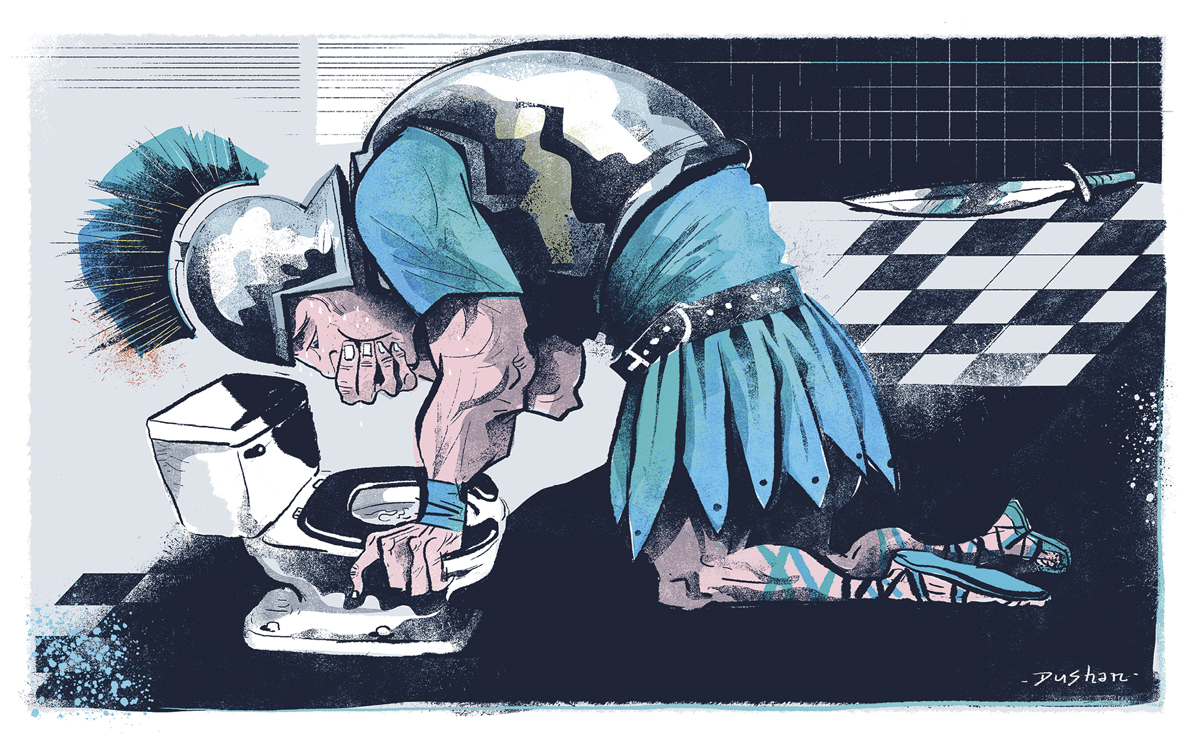
A letter arrived in my apartment in the spring of 1996, a few months before my first year of graduate school was about to begin. It was ridiculously good news: I had been chosen to teach an introductory course at Concordia University in Montreal.
That night, and for several more, the drinks were on me. This meant money, a sheen of prestige, a good reason to wear blazers and sweater vests. But as spring became summer and September approached, dread showed up at the party.
While I had spent most of my life sitting in front of teachers, I had no idea how to teach. There was a whole faculty devoted to the art and science of teaching - I had never even been in the building. My favourite teachers had been inspiring, dignified, funny and serious at once. Their techniques had always seemed so natural. Like everything that seemed natural, I knew it must have come from years of careful study, from success and failure.
I met with my mentor at the university and declared I would have to turn down the teaching assistant position. The students, many of whom were my age, would sniff me out as a fraud.
"Don't worry about teaching so much as leading," he said, as though it were somehow easier.
There was a teaching section in my neighbourhood bookstore but it was thin and superficial, filled with memoirs designed to make me cry. I read a couple of them. I cried.
The leadership section of the same bookstore was 10 times the size, bursting with bestsellers. There were techniques, programs of study, trademarked processes with evocative names. Men and women with impressive jawlines could help uncage my inner tiger, awaken the beast, unclip the wings of the mighty falcon that dwelled somewhere in or about my bosom. I was a walking zoo of leadership potential.
There is a science of leadership, a serious academic program of study. There are principles. We can take it apart, dissect and poke at it, submit papers. Leadership is an essential part of management. A good leader can take a company to an initial public offering, but it is both a technical feat and a sales job. Anyone can learn to understand balance sheets. Can anyone learn to be inspirational? Learn how to breathe life into a thing, a company, a city, a charity?
I noticed that many of the leadership guides were cross-referenced with another growing section of the store: self-help. As scientific as we are about leadership, it also carries a mystical quality. Can we lead if we lack charisma? Some of us are "natural leaders," and it's pleasing to think so. We want leadership to be a bit mysterious.
Some of my professors and heroes and friends liked to make declarations about creative writing: You either have it or you don't. You can't teach it. This is partly true. Certain people lack the personality to be writers. But most of the "natural writers" I knew in university have given up on it.
It was curious, in the leadership section of the bookstore, to learn that it is the modern path to self-fulfilment. If you decide not to be a leader, you decide to fail. And since failure is bad for us, we are in the process of redefining leadership. In the corporate culture handbooks of large organizations, leadership floats at the top of the soup of organizational values such as integrity, creativity, fairness and diversity.
Until the 1930s, we knew what we meant by leadership. Men and women with leadership ambitions wanted to be mayors, premiers, prime ministers, presidents, CEOs, directors, generals. Dale Carnegie, Stephen R. Covey, Tony Robbins and Sheryl Sandberg were not yet in the bookstore, so leaders-in-training studied The Aeneid, an epic poem about a man of extraordinary virtue who sacrifices love and comfort to launch the idea of Rome.
We live in a culture of contradiction, which is a magnificent thing. We can all be leaders, yet we long for real leadership. Boring people or stiff people or pretty people who speak in clichés about maximizing aspirational management buy-in on a go-forward basis don't feel like leaders. We know a leader when we see one, and they're as rare as snow leopards.
On my first day as a professor, I wore one of my dad's suits and walked with impeccable posture down the hall toward the classroom. I grew dizzy and stopped in the washroom to throw up. By the time I made it to my desk, in front of 30 people, I was five minutes late and sweaty, white as a snow leopard. Luckily, I had a copy of The Aeneid in the apartment.
We at New Trail welcome your comments. Robust debate and criticism are encouraged, provided it is respectful. We reserve the right to reject comments, images or links that attack ethnicity, nationality, religion, gender or sexual orientation; that include offensive language, threats, spam; are fraudulent or defamatory; infringe on copyright or trademarks; and that just generally aren’t very nice. Discussion is monitored and violation of these guidelines will result in comments being disabled.